On August 29, 2025, the Centre for Contemporary Art of Poltava Polytechnic hosted a deep art therapeutic event called “Echoes of Nature. Nature as a Mirror”, aimed at restoring inner harmony, a deep connection with oneself, grounding, and finding stability for adult IDPs whose lives had been deprived of their usual calm and connection with nature.
Olena Ostrohliad, a senior lecturer at the Department of Fine Arts, and Maryna Teslenko, a Candidate of Pedagogical Sciences and Associate Professor at the Department of Psychology and Pedagogy of Poltava Polytechnic, moderated the event.
This art therapy session was based on the concept that nature is not only an external environment for humans but also a reflection of our inner world. In states of stress and trauma, the connection with nature is often lost, intensifying feelings of isolation and anxiety. This event enabled participants to regain a sense of grounding and stability, restoring their connection with their “Self” through the use of natural elements as metaphors and symbols. It helped them discover and visualise the internal resources that exist within each of us, just as they do in nature, and to experience emotions in a safe, calming space where the sounds of the forest and fire create a unique atmosphere.
The uniqueness of this art therapy lies in the combination of artistic expression through elements of nature. Participants received sheets of paper and various graphic materials, but the primary tool was nature itself. The event began with an immersion in the atmosphere, to the sounds of the evening forest and a burning bonfire. Moderators Olena Ostrohliad and Maryna Teslenko invited participants to relax, close their eyes, and immerse themselves in the search for their inner “Self”. The sounds of rustling leaves and crackling branches in the fire helped distract from anxious thoughts. After meditation, participants were asked to find their reflection in an element of nature. This could be any object: from a small pebble symbolising stability, to a raindrop signifying tears and cleansing; from a flexible branch symbolising adaptability, to a mighty oak signifying strength. Then, the attendees created a visual image of this element, adding their feelings and associations to it. This could be a detailed drawing or an abstract composition conveying emotions. During the work, participants could interact and discuss their reflections with one another. Ultimately, all works were displayed together, forming a single, collective installation that symbolised the shared journey and interdependence between people and nature.
The “Echoes of Nature” exercise had multifaceted therapeutic value, as immersion in the sounds of the forest and fire helped normalise the state of the nervous system, reducing stress and anxiety levels, which is critically important for individuals with traumatic experiences. Finding one's reflection in an element of nature stimulated deep self-reflection, allowing participants to understand their qualities, feelings, and needs through a safe and metaphorical lens. For example, a person feeling exhausted might find a reflection in a dry branch, and then, while drawing it, realise the need for psychological “nourishment”. Elements of nature can become symbols of internal resources. By drawing a mighty tree or a calm lake, participants visualised and activated their own resilience, strength, and calm. Adding a specific element of nature to their work helped integrate the external world into the internal, contributing to the restoration of a sense of unity and connection with the world. Shared experiences, discussions of their findings, and the creation of a collective installation strengthened bonds between participants and deepened the sense of community.
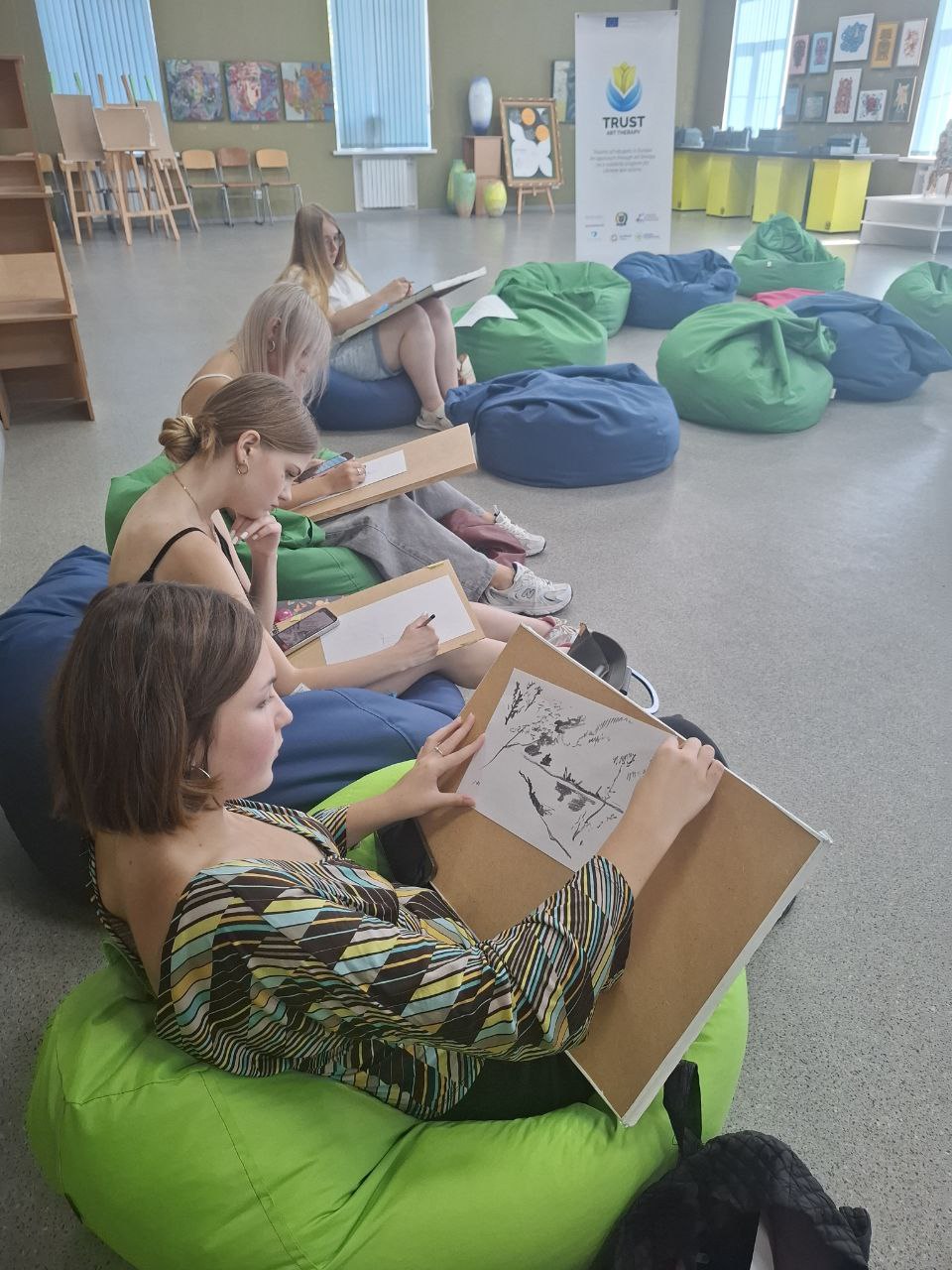
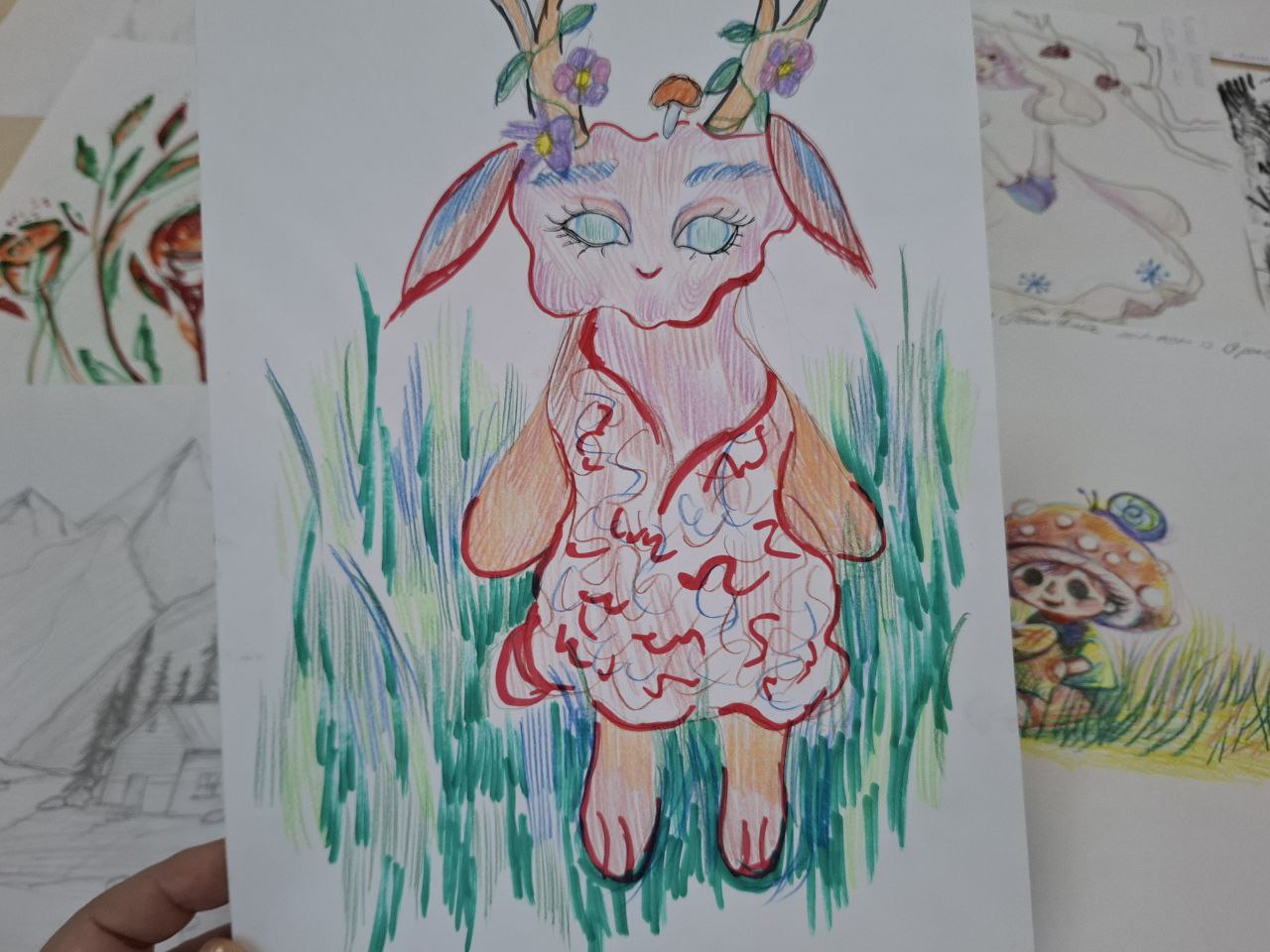
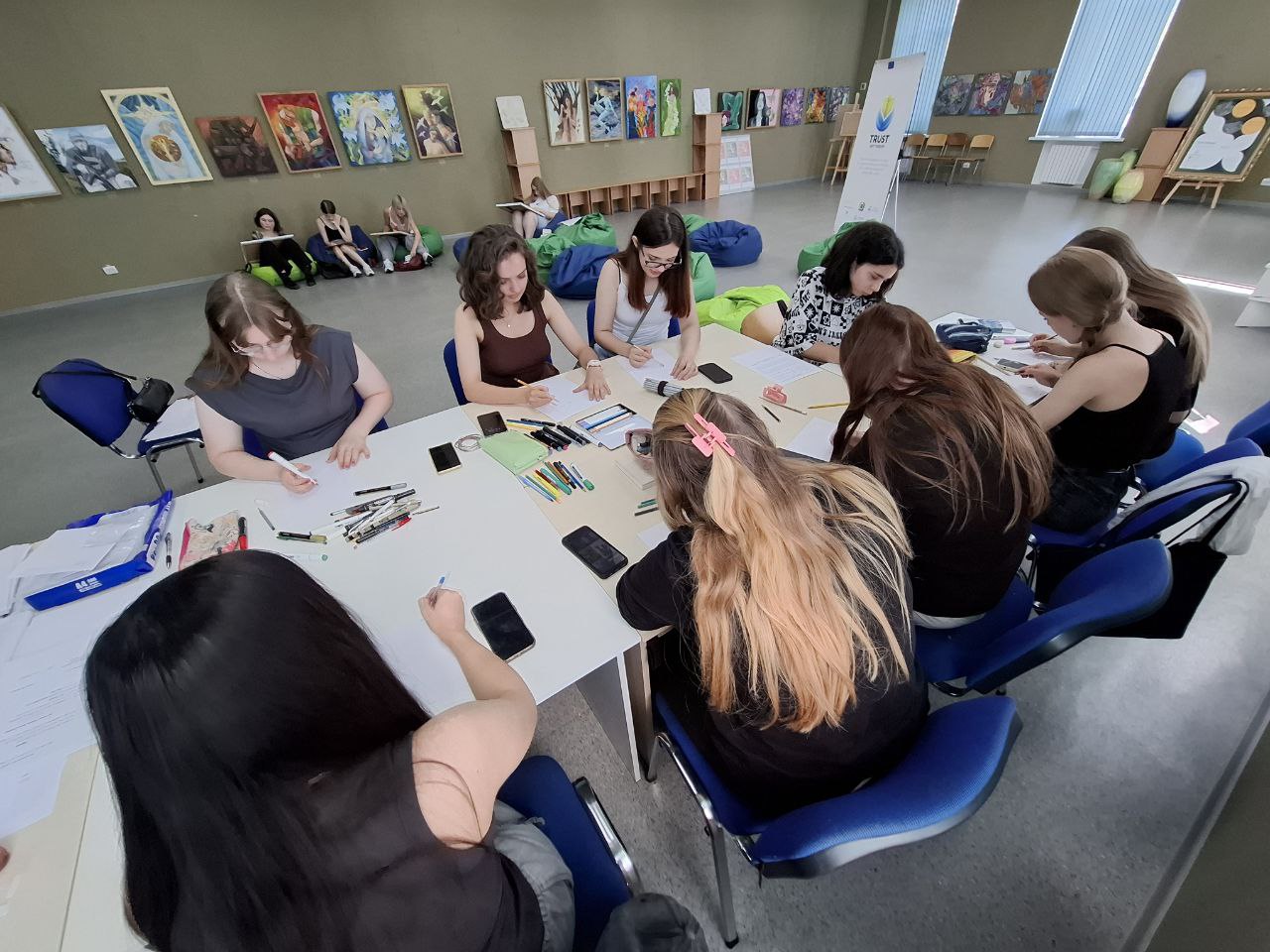
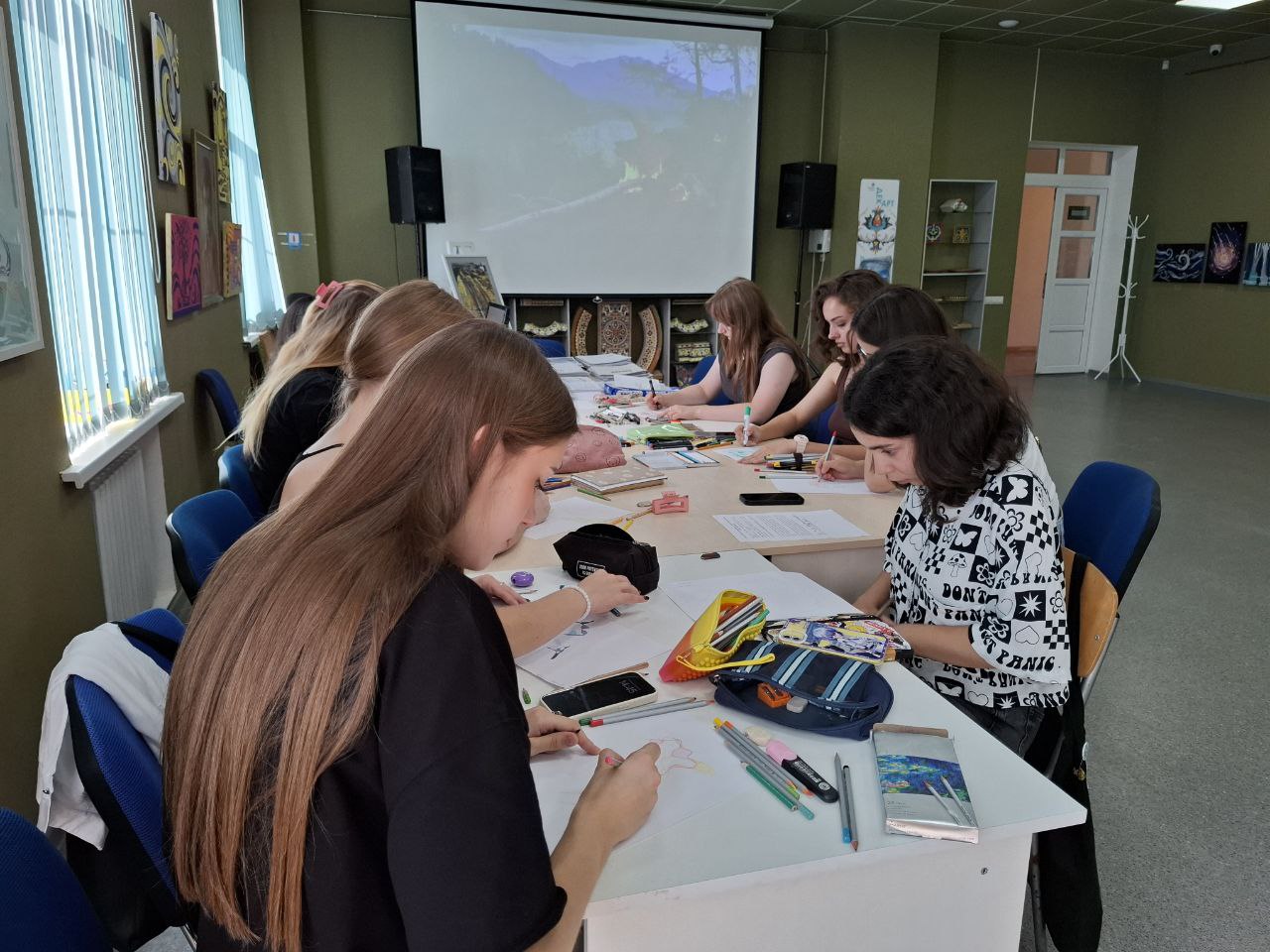
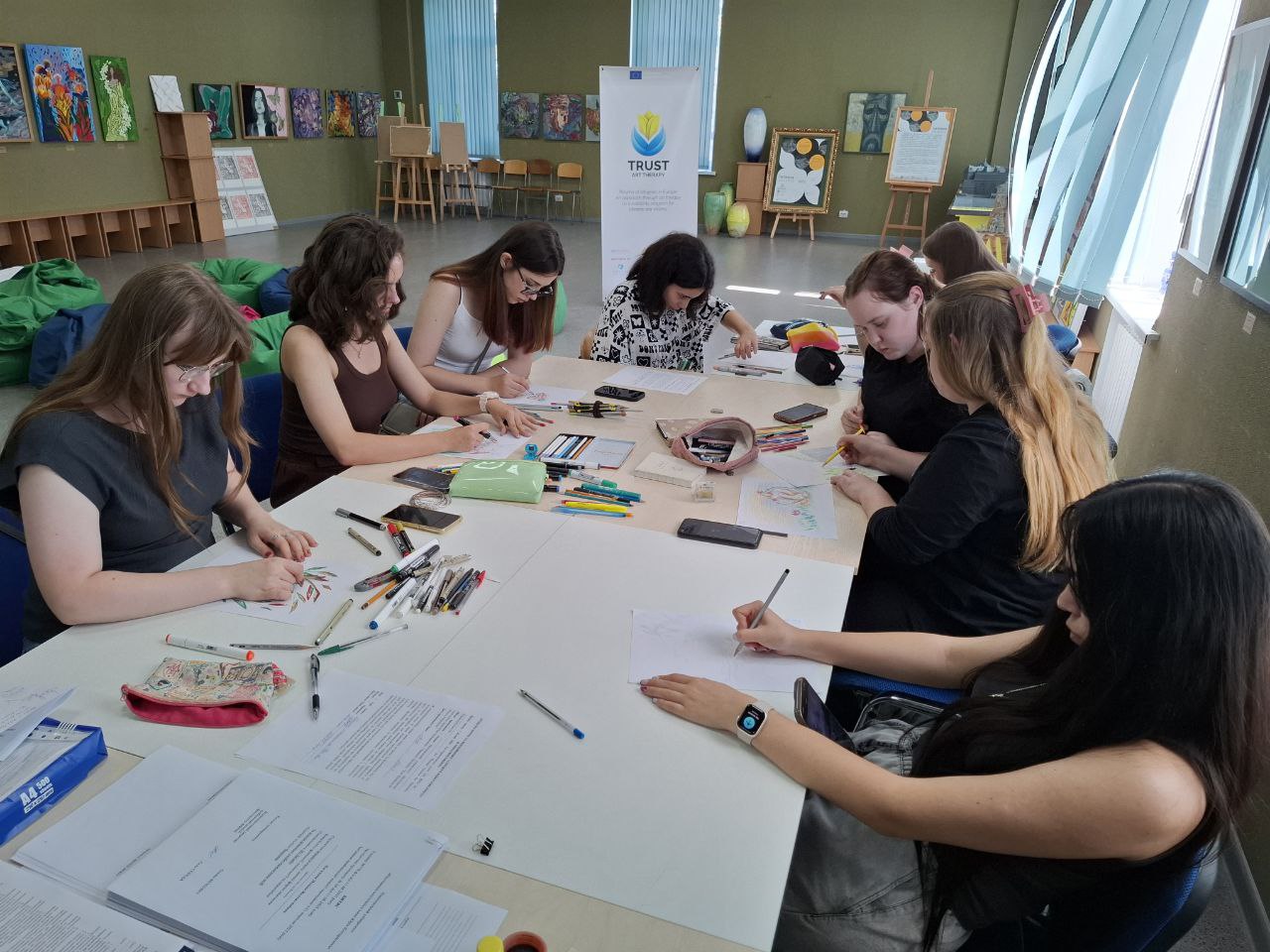
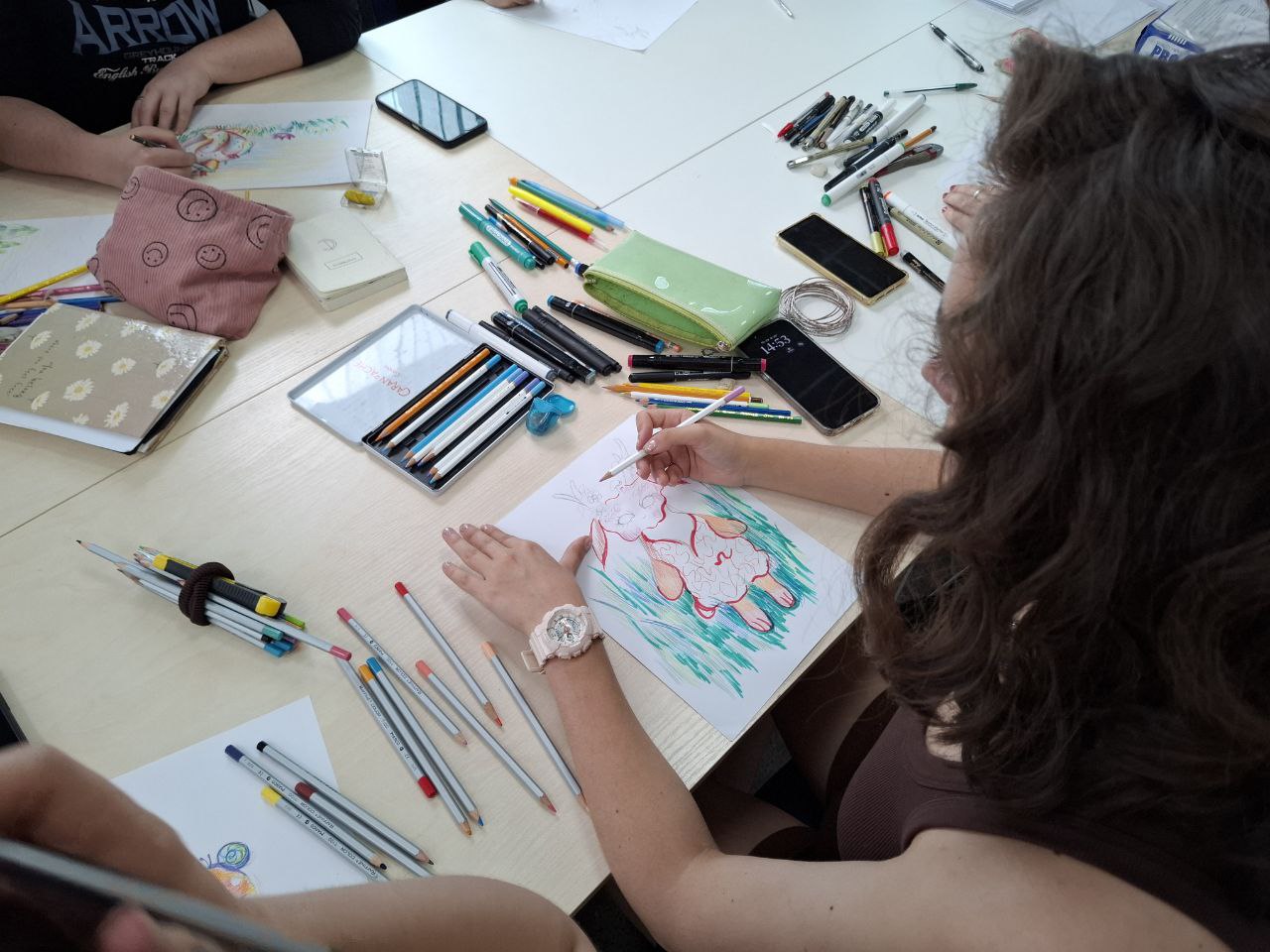
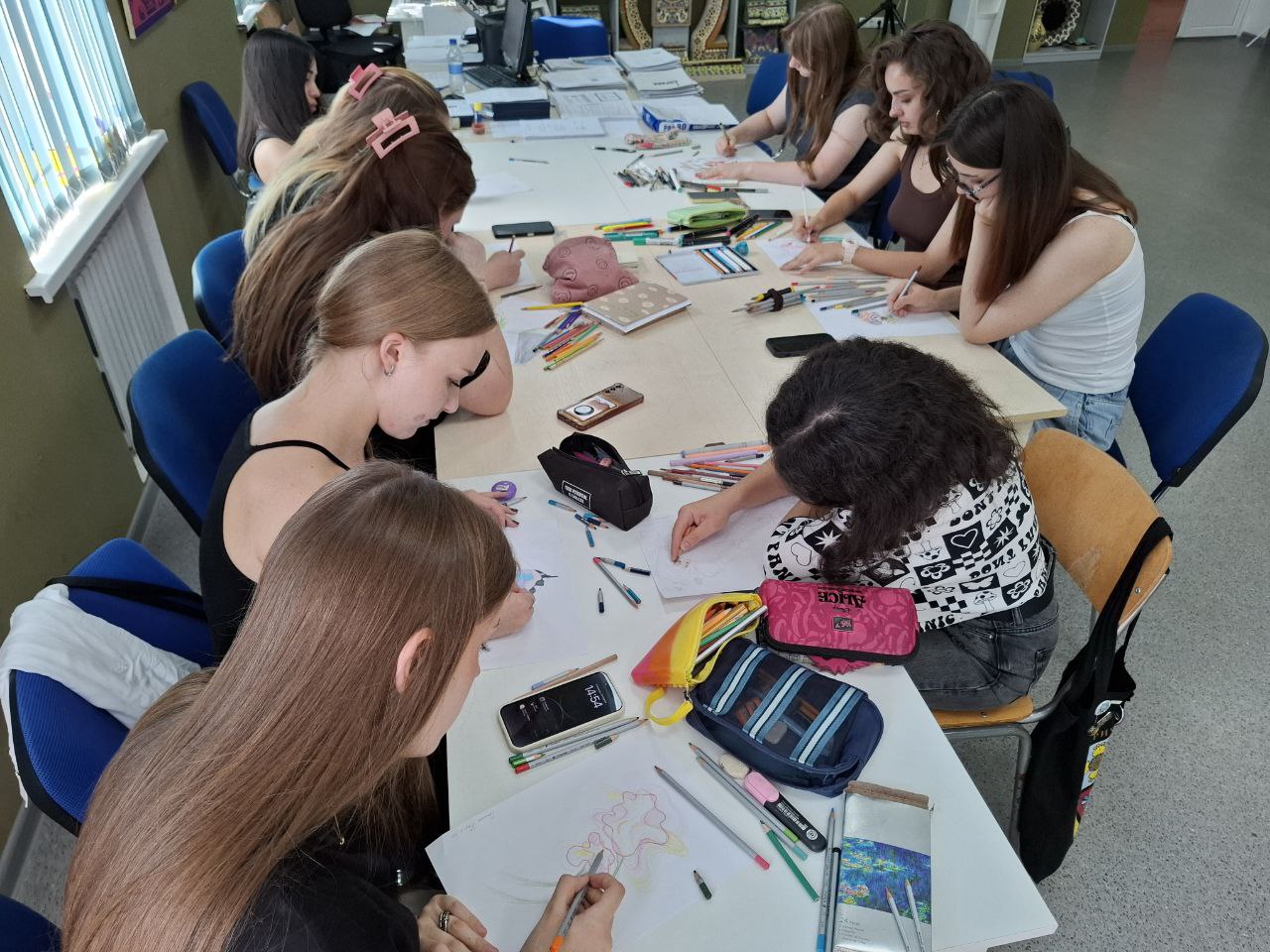
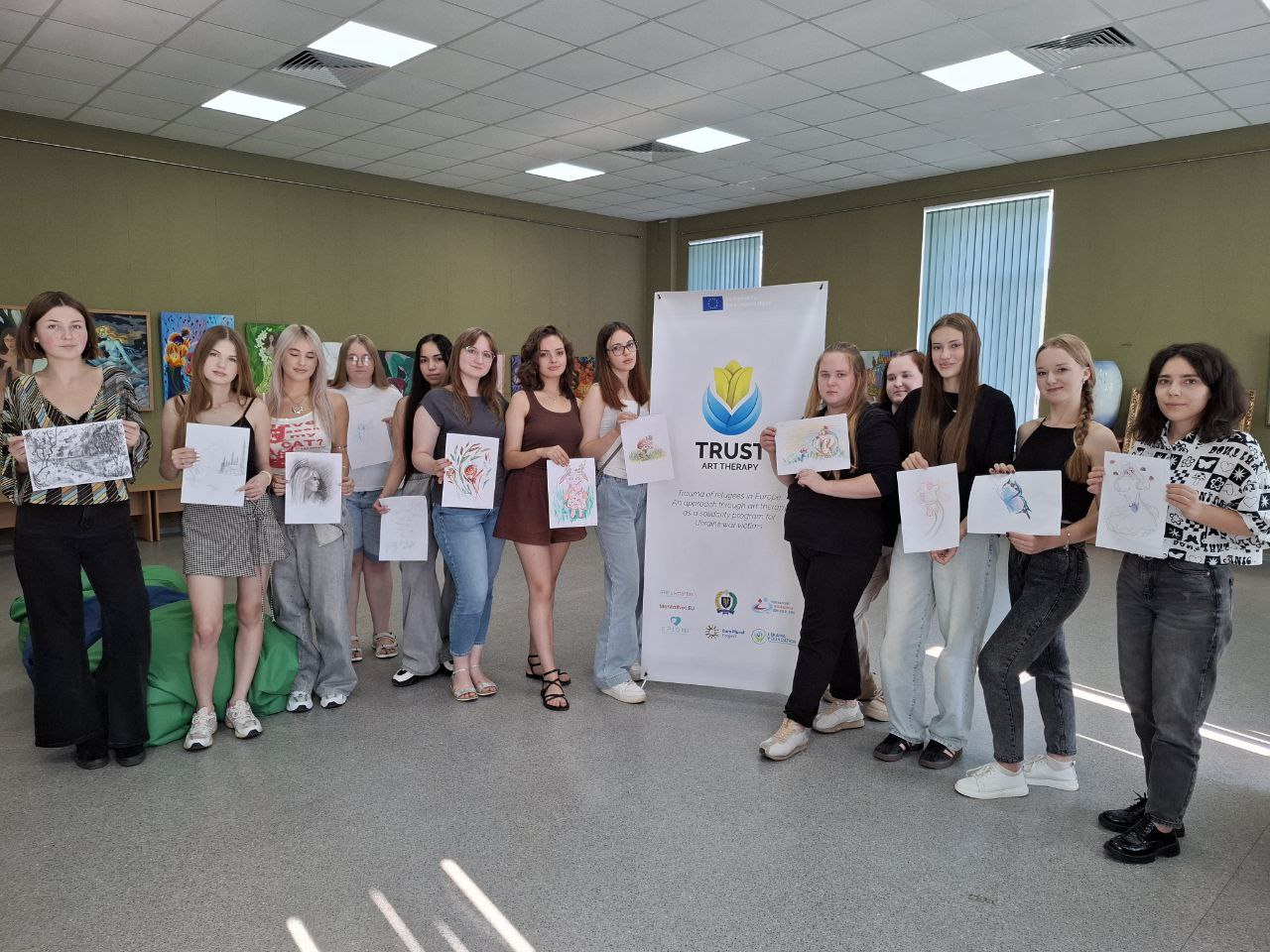
The event was held as part of the international, large-scale EU-funded Erasmus+ KA220-ADU project “TRUST” – Trauma of refugees in Europe: An approach through art therapy as a solidarity program for Ukraine war victims (Grant No. 2024-BE01-KA220-ADU-000257527).
The project title is decoded as follows:
TRUST
T – Trauma
R – Refugees
U – Ukraine
S – Solidarity
T – Therapy
The project is co-funded by the EU and led by the Centre Neuro Psychiatrique St-Martin from Belgium, in partnership with the National University “Yuri Kondratyuk Poltava Polytechnic” (Ukraine), Greek Carers Network EPIONI (Greece), Fondazione Don Luigi Di Liegro (Italy), Lekama Foundation (Luxembourg), EuroPlural Project (Portugal).
We express our sincere gratitude to our partners for their invaluable support, which makes it possible to implement such vitally important initiatives that bring the light of hope and healing to those who need it most.
It is worth noting that Poltava Polytechnic lecturers are eligible to participate in academic mobility and internship programs. Students can study abroad through Erasmus+ credit academic mobility grant programs for a semester or a full academic year at leading universities in Austria, Denmark, Estonia, Finland, Germany, Greenland, Latvia, Lithuania, the Netherlands, Norway, Poland, Portugal, Romania, Slovakia, Spain, and the Czech Republic.
For more detailed information regarding current internship, teaching, and academic mobility programs abroad, please get in touch with the International Relations Department (office 213-C, interoffice@nupp.edu.ua) or the International Relations Coordinator of the National University “Yuri Kondratyuk Poltava Polytechnic” – Ph.D. in Philology, Associate Professor of the Department of Germanic Philology and Translation, Anna Pavelieva (email: kunsite.zi@gmail.com, phone: +38-(095)-91-08-192).
Media Centre of
National University
“Yuri Kondratyuk Poltava Polytechnic”



